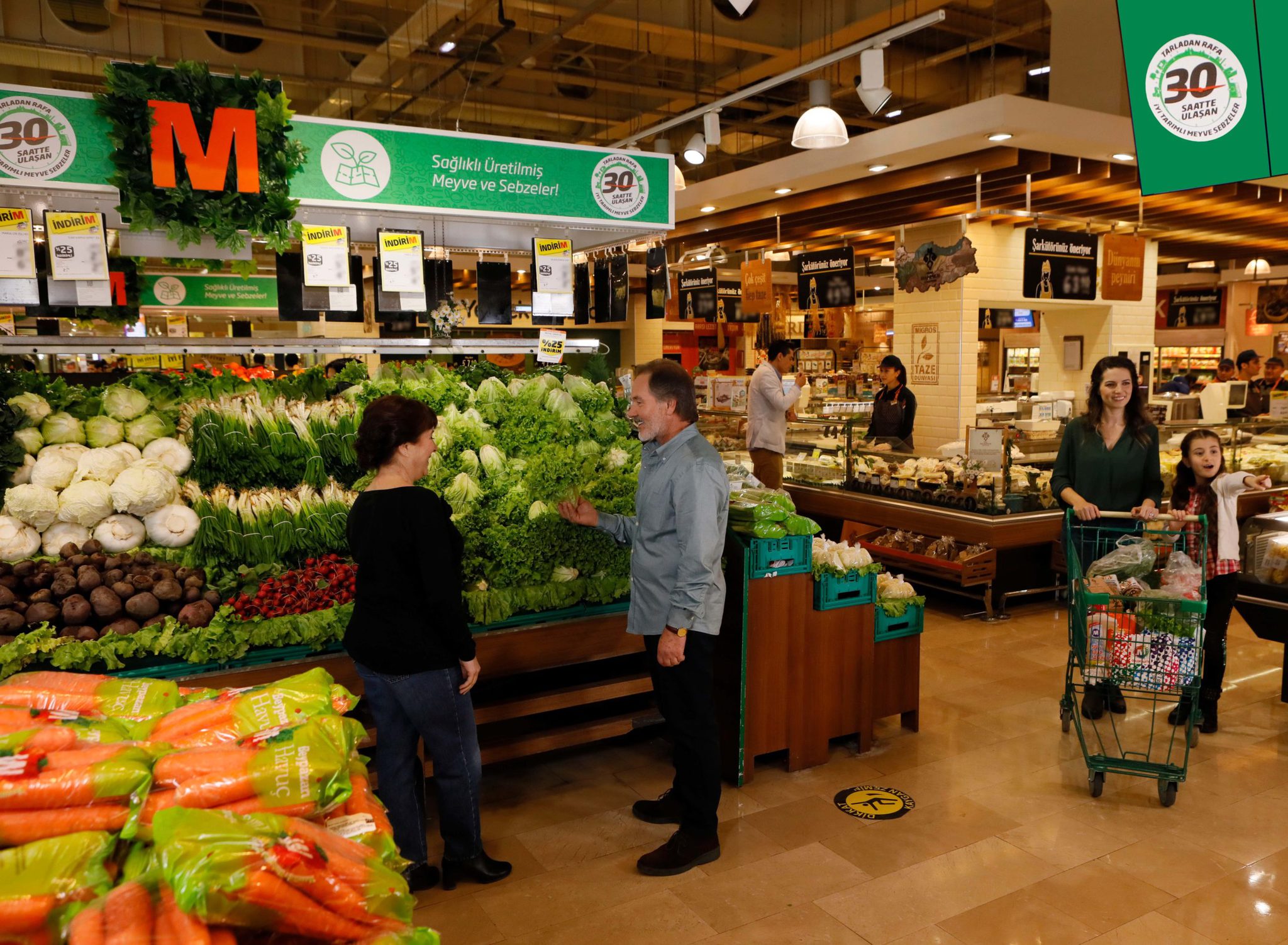Food waste is a part of the ecosystem that we are all inextricably and invisibly linked with. As Migros, we believe that a collective and concerted response to this issue is the best solution for our planet and all its life forms. For this reason, we have set ourselves the target of halving our food waste/food sales tonnage by 2030 compared to 2018. Thanks to the initiatives we have taken and our engagement with our value chain, since 2018 we have already reduced our food waste by 22 percent.
Food is essential for the continuity of life, and the story of food is as old as the existence of humanity. However, nowadays, our dependence requires more attention than ever. Climate justice highlights the fact that climate change affects people everywhere, but its impact is not equally distributed as socially disadvantaged people tend to be more dependent on environmental conditions. According to 2021 Food Waste Index Report drawn up by United Nations Environment Programme (UNEP), 931 million tonnes of food is wasted each year. And, the Food and Agriculture Organization of the United Nations (FAO) states that around 800 million people in the world are facing hunger. In the presence of these numbers, we believe that the food retail sector can make a big difference. As a member of the Food Waste Coalition of The Consumer Goods Forum, we are committed to reducing our food waste as a ratio of our food sales. We have set our target by 2030 in line with SDGs 12.3.
As Migros, we take the issue of food waste very seriously. We know that waste is not just the food itself: it is also the water used, the land worked, the effort spent, and the distance travelled. We have a unique position at the centre of suppliers/manufacturers and customers, which covers both ends of the supply chain thus giving us many opportunities to work on this issue and make a difference.
As a responsible food retailer, we carry out various projects in line with the FLW standard and the food recovery hierarchy. Reducing food waste at source is our main goal. For this purpose, we have improved our smart automatic order systems so as to generate minimal waste. In addition, we discount fruits and vegetables, and food products with imminent expiry dates by 25% to 50%: by doing so we have already saved 13,741 tons of food since 2019.
Caring for all living beings and caring for environment
Through a web-based donation platform, our food products which fall below sales standards visually, but are suitable for consumption, were donated to the needy. These donations equate to food necessary for the preparation of approximately 12,8 million meals.
We are part of an ecosystem in which our role is to care for other living beings. We therefore provide edible food items which are not preferred or suitable for human consumption for stray and forest animals in collaboration with various NGOs. Within this partnership, a total of 5,421 tons of food was reclaimed for the benefit and nutrition of animals in need.
An Ecosystem is a chain in which all connections and their effects are mapped, and it is not just living beings that have to be included. We provide energy recovery from our organic wastes through bio compost. We launched the “Black Soldier Fly (BSF)” project to support the circular economy. BSF larvae utilize fruit and vegetable waste as the nutritional source and those larvae are used as chicken and fish feed due to their high protein and oil ratio. In 2021, 13,6 tons of fruit & vegetable waste were utilized during this process and prevented 48 tons of carbon emissions.
Collective action matters
Food waste is an issue that the world needs to address in unison. We were the first Turkish retail company (and one of the first 10 companies globally) to participate in the World Resources Institute’s “10x20x30” initiative. 23 of our suppliers signed up for this initiative with the purpose of halving their food waste.
Since we have a strong belief in the principle and efficacy of “acting together”, we also participate in the FAO’s “Save Your Food” campaign in cooperation with the Turkish Ministry of Agriculture and Forestry to raise public awareness about food waste. Our final output of this partnership was the publication of an official guideline entitled “Guide to Combating Food Waste at Food Points of Sale” which was presented to the whole of the grocery sector in Turkey.
Empowered value chain is the key
According to the FAO, 30% of global food loss occurs at the agricultural production and harvest phase, through whole supply chain. For that matter, we launched a new implementation in 2021; “pilot model on upstream losses” to prevent food loss at harvest stage by engaging more with our value chain which causes a win-win scenario for business, farmers and the environment. The results of the first year are very encouraging and we are determined to scale up our efforts in 2022.
The prevention of food waste is in our core sustainability agenda to achieve sustainable agriculture and efficient use of natural resources. We have accelerated our efforts regarding our target to halve our food sales / waste ratio by 2030 compared to 2018. Thanks to the initiatives above, we have already reduced our food waste by 22 percent which is equal to 50 million meals saved.
Our mantra for tackling food waste is “reduce, reuse, recycle” and through our stance on sustainability we strive to be a role model in the sector. We will continue to engage our suppliers and customers in our efforts to reduce food waste as a collaborative response and seek for innovative approaches constantly, which will lead us to an empowered value chain and a better world.

